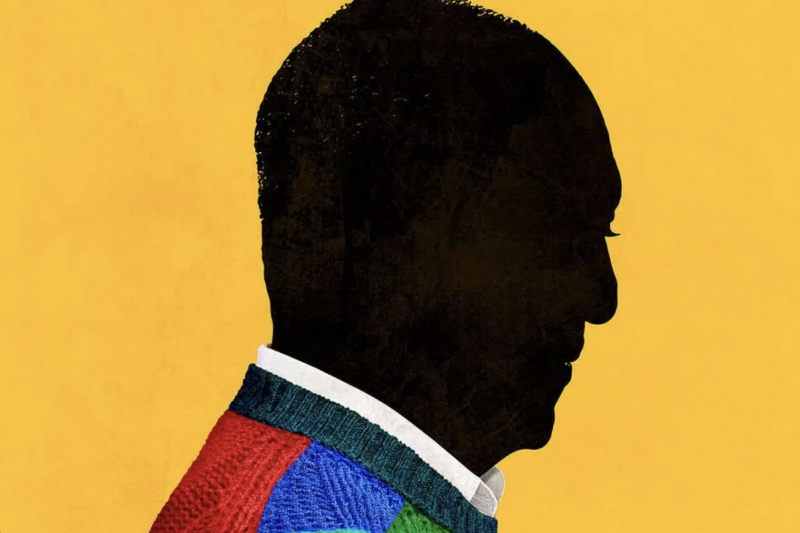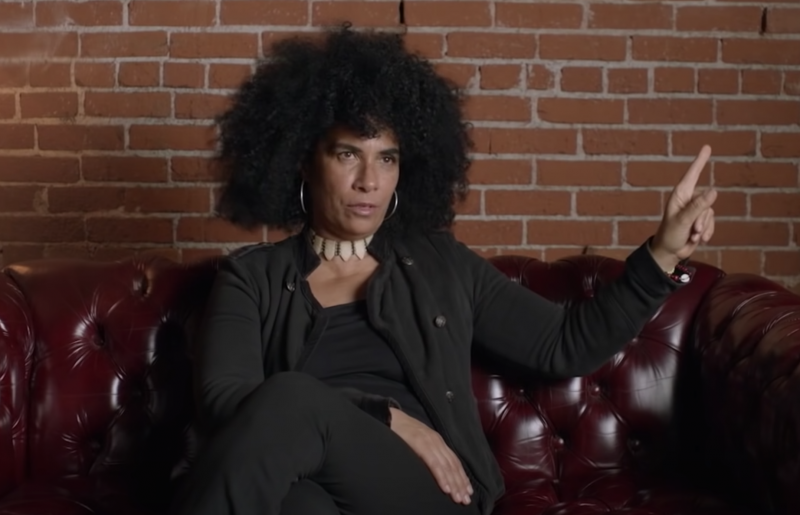In the interest of writing this review, I watched all four episodes of We Need to Talk About Cosby in very quick succession—and it is not a method I would recommend. Between experiencing full-body cringes and the repeated desire to look away, I also found myself laughing at clips from old episodes of The Cosby Show—something I assumed I’d never do again. One moment, I’d be in awe at the way Cosby almost singlehandedly transformed Black representation on American television. And the next, I’d feel rage bubbling up for the multitude of women who were privately failed because of all that public admiration.
‘We Need to Talk About Cosby’ is a Tough Conversation That’s Long Overdue

It is W. Kamau Bell’s ability to stare unflinchingly at Cosby’s legacy here—the monstrous and the positive in equal measure—that makes this series such an emotional rollercoaster. But it’s also exactly what makes We Need to Talk About Cosby so compelling. Bell’s own struggle with the material is palpable when he centers himself in the documentary. “I am a child of Bill Cosby,” Bell notes in the first episode of the Showtime series. “I am Black man, I am a stand-up comic. I was born in the ’70s. I was raised by Fat Albert, Picture Pages and The Cosby Show. Bill Cosby himself showed me you could be smart and funny in equal measure.”
Though the series undoubtedly benefits from it, Bell’s personal relationship with Cosby was not originally supposed to be part of this documentary. In promotional interviews, Bell has admitted that he only put his personal narrative into the story when a plethora of “comedians, famous people, commentators [and] people who had worked with Bill Cosby” refused to talk to him on camera, in the interests of avoiding a minefield. “I’m still experiencing fear for when this comes out in a wide way, how people respond to it,” Bell told Vanity Fair last week. “Some people I know are going to hate it and never even watch it.”
The brave souls who did volunteer to participate in We Need to Talk About Bill Cosby are primarily a mix of academics, journalists, cultural critics, comedians and actors. The series juxtaposes Cosby’s career arc with the politics of each era, examining how those two things intersected, and how Cosby used his talent to defy the status quo at almost every turn. In the early 1960s, when Black people were either absent from TV screens or portrayed as childlike simpletons, Cosby was playing a 007-style hero in I Spy. When 1980s mainstream media presented Black fathers as absent and irresponsible, Cosby became “America’s Dad.” That he succeeded this way continues to feel miraculous.
Interspersed throughout the many examples of Cosby’s success and positive influence, his rape accusers are given ample space to tell their stories at their own pace. Each is strikingly similar to the next. Each is horrific in its own singular way. (Former Playboy model Victoria Valentino’s story plays out like a roiling nightmare, agonizing to even hear secondhand.) It is striking that many of these women speak of feeling embarrassed and ashamed of “blacking out” in Cosby’s presence rather than believing he would drug them. (Lise Lotte-Lublin explains that she only fully realized what had happened to her after Janice Dickinson publicly spoke out in 2014 about her own experience with Cosby.)
One of the things that We Need to Talk About Cosby does incredibly well is to explain, in great detail, how Cosby used his benevolent deeds to mask his malevolent ones. “He used the power, and the money that came with it, to directly make the lives of Black people better,” Bell narrates at one point, noting that Cosby donated millions of dollars to HBCUs.
This is how Cosby earned enough good faith to evade any real public scrutiny. It’s also, chillingly, how he got young women to trust him enough to agree to mentorships and private coaching sessions on the spot.
And yet, the breadcrumbs Cosby scattered in popular culture about his private compulsions are also gathered together in the series. It’s a stunning presentation of what audiences are willing to overlook when it comes to our most beloved entertainers. There was Cosby’s “Spanish Fly” comedy routine in 1969. There were 15 separate mentions of the drug in his Childhood book, released in 1991. There was the episode of The Cosby Show in which he talks about his homemade barbecue sauce as a weird kind of aphrodisiac. There was his willingness to talk about putting drugs in women’s drinks in TV interviews.
“He told you what he did. He told you about the pills,” says Temple University professor Marc Lamont Hill. “He told you that they went in drinks. He made that very clear without anybody else’s help. Without any witness testimony … If I just go by what Bill Cosby tells me, I know he’s a creep.”

Former Cosby Show actresses Lily Bernard and Eden Tirl raise questions about who knew what and when. They argue that Cosby’s focus on young, beautiful women was an open secret on set, and that his manipulative methods of gaining access to them were well known. Cosby’s wife Camille, they explain, was never on set. (“She didn’t exist,” Bernard shrugs.) All the while, Cosby presented himself as a family man in his public life.
We Need to Talk About Cosby is helpful in understanding how Cosby’s positive image was well constructed and deeply embedded into culture. Several interviewees here—including Joseph C. Phillips, who played Martin on The Cosby Show—readily admit that they didn’t believe the women speaking out against Cosby until it happened to someone they knew. For Phillips, that was an old friend who’d also worked on The Cosby Show. “We sit in my car,” he says. “It was an hour later, she spilled it all out, and she says to me, ‘Do you believe me?’ And I said ‘Yes, I believe you.’ She wasn’t lying. So he at least did it to her. And if he did it to her, yes, I believe there were others.”
Towards the end of the series, Bell poses a tough question. “What happens when the artist you idolized isn’t the human being you thought they were? And what if that person’s artistic achievement, living example and good works were so great that they changed the world? What then?”
If there is an answer in We Need to Talk About Cosby, it’s that there are no simple answers. All we can do is talk it out. And We Need to Talk About Cosby is a hell of a way to start that conversation. Its final moments will leave you chilled to the bone.

